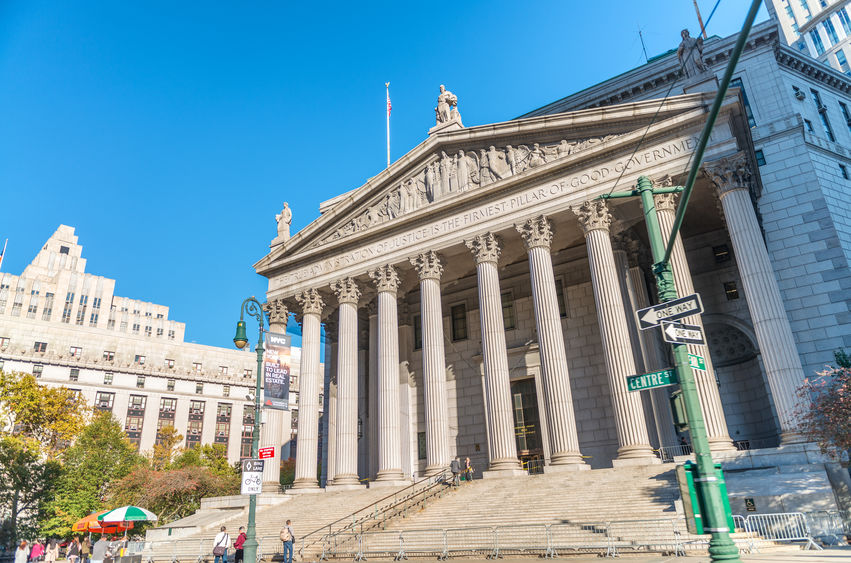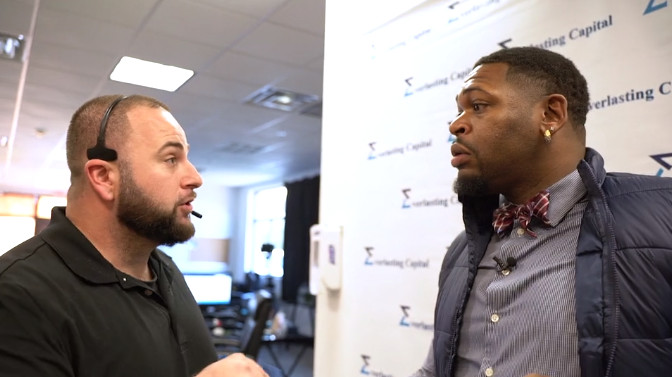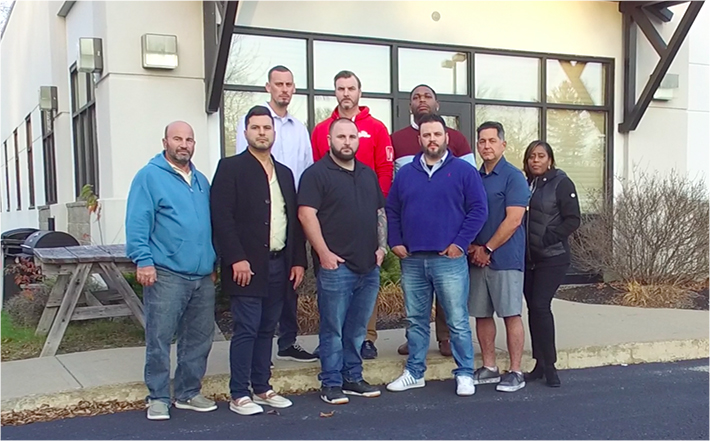Articles by deBanked Staff
deBanked CONNECT MIAMI is SOLD OUT
March 15, 2022
Update: The deBanked events team is now en route to the location.
Tickets to deBanked Connect Miami have officially sold out.
The incredible demand led to more registrations than any previous deBanked CONNECT event in history.
“People want to network in person, they want to learn about what’s going on in the business around them,” said deBanked president Sean Murray. “But this one has surpassed all of our expectations.”
The March 24th event at the JW Marriott Marquis will be deBanked’s 4th time in Miami since 2018. Attendees of the small-business finance-focused event can expect to connect with brokers, lenders, funders, venders, lead generators, collectors, lawyers, investors, software providers, and more.
Tickets and sponsorships are no longer available. If you are already registered and have questions, email events@debanked.com.
PPP Lender Arrested on Fraud Charges Also Allegedly Reversed PPP ACHs, Separate Civil Lawsuit States
March 14, 2022 It’s not just criminal fraud charges that the CEO of MBE Capital Partners is facing. Rafael Martinez, who was arrested two weeks ago for allegedly lying to financial institutions and the government about MBE’s size in order to fraudulently obtain PPP lender status, is also facing a civil suit in New York where more than four dozen co-plaintiffs are suing his company. In it, several of the plaintiffs have alleged that MBE unexpectedly and without notice debited out the full balance of the PPP loans from their accounts weeks or even months after they got funded them in the first place.
It’s not just criminal fraud charges that the CEO of MBE Capital Partners is facing. Rafael Martinez, who was arrested two weeks ago for allegedly lying to financial institutions and the government about MBE’s size in order to fraudulently obtain PPP lender status, is also facing a civil suit in New York where more than four dozen co-plaintiffs are suing his company. In it, several of the plaintiffs have alleged that MBE unexpectedly and without notice debited out the full balance of the PPP loans from their accounts weeks or even months after they got funded them in the first place.
“Since a majority of these [Plaintiffs] had already properly used their PPP proceeds at the time of Defendants reclamation reversal, in a majority of instances the funds withdrawn from each account consisted, in whole or in part, of non-PPP funds,” the lawsuit states.
Plaintiffs contend that MBE had taken this step because MBE had wrongly suspected some type of fraud on the part of the borrowers, and that nevertheless did not have the authority to reverse the ACHs even if it were true. MBE in its public reply denied the allegations and filed a counterclaim against a single individual that had purportedly assisted the plaintiffs in filing their PPP applications.
While the government has brought hundreds of claims against PPP borrowers, this is the first known instance of a PPP lender taking a vigilante approach to suspected fraud by just allegedly debiting back the entirety of the PPP funds. Plaintiffs claim that when MBE did so, that they weren’t even under any kind of investigation by the SBA.
The civil suit in New York is unrelated to the fraud that MBE Capital CEO Rafael Martinez was arrested for. Federally, Martinez is accused of using misrepresentations to trick his way into becoming an authorized PPP lender that helped him pocket $71 million in lender fees in the process. With that Martinez reportedly bought a villa in the Dominican Republic, a Ferrari, and private jets.
The civil suit in New York, meanwhile, can be found under Index Number: 652786/2021
Funding Circle’s Originations Have Slowed Dramatically in The US
March 10, 2022 Funding Circle’s US originations fell significantly in 2021 versus the previous two years, the company’s latest year-end report revealed. US originations were only £316M in 2021, of which £224M was PPP funding. That £92M in non-PPP funding was a massive drop from the £619 in 2019, for example.
Funding Circle’s US originations fell significantly in 2021 versus the previous two years, the company’s latest year-end report revealed. US originations were only £316M in 2021, of which £224M was PPP funding. That £92M in non-PPP funding was a massive drop from the £619 in 2019, for example.
Funding Circle attributed the reduction in demand to the ending of government stimulus programs.
“The US has a fragmented SME lending market,” the company stated in its full-year report. It estimated that 89% of all SME lending was done through banks and only 10% through specialty finance providers.
Funding Circle’s loans have small margins. The company projects annualized returns of only 5-7% on its US-originated non-PPP loans. Meanwhile, annualized inflation in the US by comparison is currently trending at 7.9%.
Funding Circle also announced its exit from the peer-to-peer lending model. According to the Financial Times, Funding Circle CEO Lisa Jacobs said of it: “There’s been a big shift; the industry has shrunk severely.”
Broker Show Ends in a Cold Call Showdown For The Ages
March 3, 2022
The nearly 1-hour long season finale of Equipping The Dream aired on Thursday, concluding the first reality show to ever capture the business finance industry. The six-episode series which followed four aspiring equipment finance brokers, proved, if nothing else, that cold calling and phone sales are not dead.
The show’s contestants capped off their week of sales training with a calling competition that came down to the wire and an outcome that left viewers shocked. Josh Feinberg, one of the sales trainers in Equipping The Dream, explained it best. “It almost seemed like it was scripted, but it couldn’t have been more real.”

Two episodes were released each week starting on February 15th. The March 3rd airing of the finale means that eager viewers can now binge the entire show on deBanked TV without having to wait for future episodes. (Start With Episode 1 here)
The show captured a real life broker training at the office of Everlasting Capital in Rochester, New Hampshire. deBanked’s Sean Murray served as Executive Producer.
“I really had no idea what we were going to capture by having our camera crew there all week,” Murray said. “But what we got is something everyone doing sales in the industry should watch at least once. It came out that good.”
Connecticut Revives Commercial Financing Disclosure Bill
March 3, 2022The State of Connecticut has resurrected its commercial financing disclosure bill, adding to the pile of states doing the same. Senate Bill 272 is a throwback to earlier versions of legislative drafting in that it contains the term “double dipping.”
The bill was only just reintroduced today, March 3rd, where it has been referred to the Joint Committee on Banking. When it was raised last year, it was met with fierce opposition.
The full text of the bill can be read here.
deBanked Spins Off Crypto News into a Separate New Brand
February 28, 2022 Move over de-banked, one segment of fintech is becoming completely de-cashed as crypto transactions continue to flourish. The universe of bitcoin, ethereum, blockchain, smart transactions, and NFTs only scratch the surface of the innovation and potential that could one day replace the financial system as we know it.
Move over de-banked, one segment of fintech is becoming completely de-cashed as crypto transactions continue to flourish. The universe of bitcoin, ethereum, blockchain, smart transactions, and NFTs only scratch the surface of the innovation and potential that could one day replace the financial system as we know it.
deBanked began reporting on crypto in 2014 in the early days of Bitcoin and since then, through fits and starts, has increased the amount of coverage in that space. After much internal deliberation, our team decided at the end of 2021 to create an off-shoot brand focused entirely on crypto-related news, deCashed.
deCashed will cover everything from crypto-lending to fintech to smart contracts to NFTs. deBanked launched its own NFT smart contract on the Ethereum blockchain last September and deBanked Chief Editor Sean Murray will be speaking at NFT NYC in June 2022.
“Everything with the deBanked brand and business will remain the same,” said Murray. “I’ve been using and following cryptocurrency for eight years at this point. deCashed will finally provide us with the journalistic runway to expand our horizons into a market we already know and one that has so much untapped opportunity.”
As independent media, deCashed is still in its early days. “It’s live already but stay tuned,” Murray said. “We’ve been talking about doing this for a really long time.”
Square Loans Originated $850M in SMB Funding in Q4
February 24, 2022Despite Block feasting off of Bitcoin sales revenue last year, the company’s small business lending division, Square Loans, originated $850M in loans in the 4th quarter of 2021. That was spread out across 103,000 loans.
That brings the full year 2021 total to $2.45B, a new annual record for Square Loans, whose non-PPP related lending had dropped by more than 50% in 2020 when compared to 2019. It also put them ahead of rival OnDeck for the first year ever.
Square Loans was not mentioned by name during the company’s Q4 earnings call, but Square CFO Amrita Ahuja said, “We continue to believe our Square ecosystem is differentiated due to our integrated and cohesive set of products across the hardware, software, payments and financial services, serving seller needs in a more comprehensive way. We are making progress in surfacing incremental product adoption to serve our sellers across multiple vectors, with a goal of creating a more retentive and valuable relationship.”
Reality Show About SMB Finance Sales Rockets to The Top Spot
February 20, 2022 Four aspiring equipment finance brokers traveled to Rochester, New Hampshire last November to get a hands-on sales training from the management team at Everlasting Capital. With a variety of backgrounds and dreams of turning commercial finance sales into a lucrative career, each trainee wasn’t sure what they were in for when a team of mentors and a film crew awaited them inside.
Four aspiring equipment finance brokers traveled to Rochester, New Hampshire last November to get a hands-on sales training from the management team at Everlasting Capital. With a variety of backgrounds and dreams of turning commercial finance sales into a lucrative career, each trainee wasn’t sure what they were in for when a team of mentors and a film crew awaited them inside.
That’s the basis for Equipping The Dream, a deBanked TV produced web-based reality show that debuted on February 15th. The six-episode show is dropping twice a week until the finale scheduled for March 3rd.
Over the weekend, Episode 1 of the show became the most visited page on deBanked in 2022 so far.
“There’s never been anything like this about the industry,” said Executive Producer Sean Murray. “We did a screening of it for some people who had nothing to do with sales or finance and they were captivated by it.”
 Partners Josh Feinberg and Will Murphy were already well-known throughout the industry. The two were featured in a 2018 deBanked story that explains how their journey began years earlier in a pawnshop basement. Since then, the pair now also run Equipment Broker School, a training course for aspiring brokers.
Partners Josh Feinberg and Will Murphy were already well-known throughout the industry. The two were featured in a 2018 deBanked story that explains how their journey began years earlier in a pawnshop basement. Since then, the pair now also run Equipment Broker School, a training course for aspiring brokers.
The sales tips and experience in the show, therefore, are as real as it gets. Viewers have shared what they thought of the first two episodes out so far:
“It was inspiring to see other people doing what I’m doing.”
“Awesome production!”
“This is getting good! COLD CALLERS watch this!!!!”
“This did not disappoint.”
“Your camera quality is better than most shows on Netflix.”
“I’m rooting for these brokers to succeed.”
“Now that’s reality!”
Episode 3 will be released on Tuesday, February 22nd. The four trainees range in ages 35-50. The show is exclusively on deBanked TV.






























